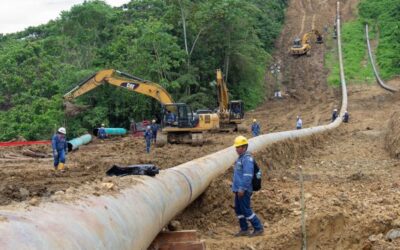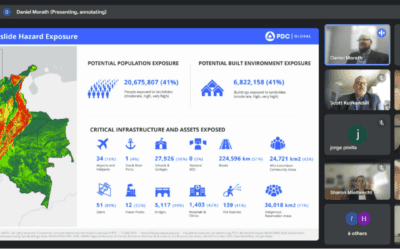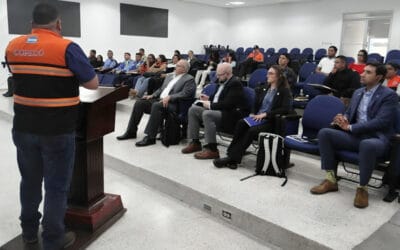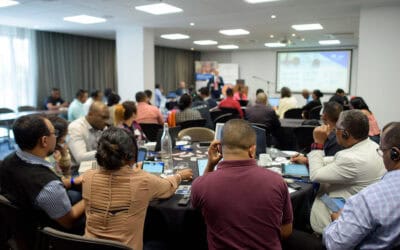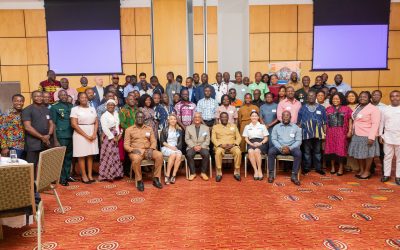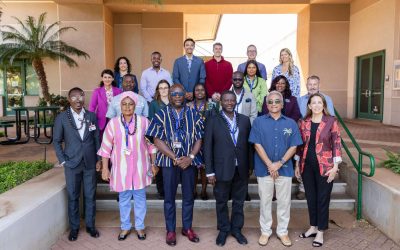Paramaribo, Suriname—Suriname is taking new initiatives to further its commitment to achieving the Sustainable Development Goals, implementing the Paris Agreement, and reducing disaster risks. A small country on the northern coast of South America, Suriname initiated a National Disaster Preparedness Baseline Assessment through its National Coordination Center for Disaster Relief (NCCR) in partnership with the University of Hawai’i’s Pacific Disaster Center (PDC). Using a collaborative, stakeholder-led process, the assessment will help evaluate multidimensional risk and vulnerability within each of Suriname’s ten districts.
To kick off the project, a workshop and exchange took place on June 13, 2023 at the Courtyard by Marriott Paramaribo. The event brought together representatives from more than 25 different ministries, nonprofits, and international organizations—all of whom have critical insights and experience in solving complex disaster management problems and responding to major events.
“Thoughts will be exchanged with all these actors about proper disaster preparedness,” said NCCR coordinator Col. Jerry Slijngard during his opening remarks. According to Slijngard, the kick-off is the first step towards coordinated functioning in the event of disasters. He said the PDC will play an important role in this by developing a “disaster aware tool” from which all partners can obtain their information.
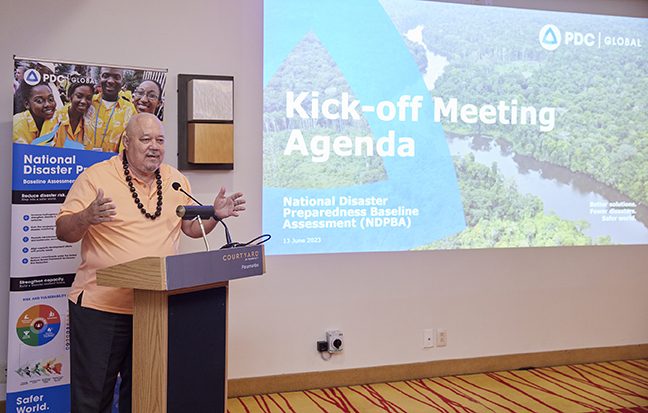
“This system will help the institutions to respond more quickly.”
—NCCR coordinator Col. Jerry Slijngard
The National Disaster Preparedness Baseline Assessment is an internationally recognized program developed by PDC that will use a scientific process to help improve the availability and reliability of risk data and early warning information in order to safeguard Suriname now and into the future.
“The baseline assessment is the only operationalized approach to the UN Sendai Framework for Disaster Risk Reduction and is also designed to help countries achieve the targets for sustainable development and the targets of the Paris Agreement—ensuring nobody is left behind.”
—PDC’s Director of Global Operations Dr. Erin Hughey
Although Suriname is one of only three carbon-negative nations in the world, it has been significantly affected by extreme weather events—especially in coastal and inland areas where people are vulnerable to extreme flooding and other severe hazards.
According to Dr. Hughey, no country is immune to the impacts of disasters and it will require collaboration across national borders and a global network of partners to help build resilience and mitigate challenges.
“To understand and protect against risk, PDC will collaborate with NCCR to conduct the assessment and to share and exchange knowledge among all stakeholders. Together, we will develop a five-year action plan to enhance capacities and prioritize strategies and investments to build more disaster-resilient communities,” said Dr. Hughey.
The assessment is set to take place over a period of twelve months and provide a comprehensive analysis of national and subnational disaster management capacities. It will include assessment reports for each of the ten districts assessed. All data and information produced will be processed and visualized in geospatial format and made available to Suriname as well as through PDC’s DisasterAWARE platform.
DisasterAWARE provides real-time early warning for multiple hazards and advanced modeling of potential hazard impacts as hazards occur. The system is designed for the disaster management and humanitarian response community who will leverage Suriname’s assessment information to support effective disaster planning, preparedness, response, and mitigation.
